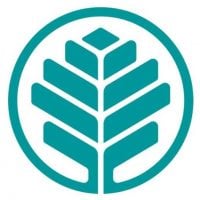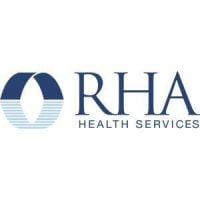Monarch - Lillian Mill Administration Office
Drug Rehab Center in Albemarle, North Carolina
The Monarch - Lillian Mill Administration Office is an accredited addiction treatment facility in Albemarle, NC offering various levels of drug rehab services such as inpatient, outpatient, residential, detox, and sober-living/half-way, as well as aftercare support and acceptance of private insurance.
About This North Carolina Facility
Monarch, located in Albemarle, NC, provides a nurturing environment focused on promoting independence and overall wellbeing for individuals facing intellectual disabilities, mental health challenges, and substance use disorders.
The caring professionals at Monarch work diligently to create individualized treatment plans tailored to each person's unique needs and goals.
Accredited by the Joint Commission, Monarch offers comprehensive services including counseling, therapy, residential programs, vocational training, and support groups utilizing evidence-based approaches. Their dedicated team guides clients on the path to long-term recovery.
- Specialized treatment for substance use disorders
- Mental health services for a range of conditions
- Programs promoting independence for those with intellectual disabilities
- Residential options and community integration support
Monarch specializes in treating addictions to drugs and alcohol through a multifaceted approach combining counseling, therapy, and support groups. Their experienced staff provides compassionate guidance throughout the recovery process.
For those struggling with opioid addiction or alcoholism, Monarch offers a safe, nurturing environment to begin the journey towards sobriety. Their comprehensive programs address the physical, mental, and emotional aspects of addiction, empowering clients to achieve lasting recovery.
Genders
Ages
Modality
Additional
Accreditations

JCAHO
Conditions and Issues Treated
Rehab centers in North Carolina exist to help individuals bounce back from substance abuse. Drug addiction refers to the use of illegal drugs and improper use of prescription drugs. Substance abuse includes all problems that stem out from using psychoactive substances. Centers like Monarch - Lillian Mill Administration Office are here to help.
Opioid addiction is one of the most common forms of addiction North Carolina. Opioids include drugs like heroin, oxycontin and fentanyl. They are prescribed to treat pain, but they are often abused and they are addictive. The addiction is treated by detoxing the body, so it no longer needs the chemicals in the drugs. This is followed up by therapies to correct behavior and target the root of the problem.
Some of the most common co-occurring disorders are schizophrenia, depression, and bipolar disorder. Most rehab facilities in Albemarle, NC like Monarch - Lillian Mill Administration Office provide patients with a dual diagnosis. Dual diagnosis gives rehab the means to treat addiction while restoring mental and emotional health.
Levels of Care Offered at Monarch - Lillian Mill Administration Office
This center offers a variety of custom treatment tailored to individual recovery. Currently available are Aftercare Support, Detox, Drug Rehab, Dual-Diagnosis, Inpatient, Intervention, Outpatient, Residential, Sober-Living / Half-Way, with additional therapies available as listed below.
Detox is the first step of rehab. It involves giving a person time to get the toxins out of their body. During detox, the patient gets ill and they will often start using again to get rid of these unpleasant feelings. That’s why it’s so important to have a Albemarle medical professional at Monarch - Lillian Mill Administration Office present. A North Carolina medical professional will make sure patients don’t start using during detox. They will also provide medication to ease their symptoms and coach them through on a mental level.
Inpatient rehabilitation aims to treat severe addictions and co-occurring disorders. Depending on individual requirements, the duration of the stay at Monarch - Lillian Mill Administration Office ranges from four weeks to six months. North Carolina inpatient recovery guarantees that the patient resides in an environment free of drugs.
An Outpatient Rehab Program is a part-time drug rehab program for treating individuals in Albemarle, NC with mild addiction or mild-to-moderate drug withdrawal symptoms. It generally requires about 10 to 12 hours every week.
Doctors can administer on-the-spot medication to ease withdrawal symptoms such as anxiety, increased heart rate, and even depression. Groups such as Alcoholics Anonymous (AA) and Narcotics Anonymous (NA) can be used as a part of outpatient treatment to help maintain sobriety.
A sober living home aims to reinforce sobriety and learnings from inpatient and outpatient programs. It’s a supervised environment in Albemarle, NC managed by Monarch - Lillian Mill Administration Office, which is guaranteed safe and free from addictive substances. There are strict rules regarding curfew and responsibilities, such as shared chores.
Residential treatment programs are those that offer housing and meals in addition to substance abuse treatment. Rehab facilities that offer residential treatment allow patients to focus solely on recovery, in an environment totally separate from their lives. Some rehab centers specialize in short-term residential treatment (a few days to a week or two), while others solely provide treatment on a long-term basis (several weeks to months). Some offer both, and tailor treatment to the patient’s individual requirements.
An intervention is a planned conversation between an addicted person and their loved ones. Usually, a licensed alcohol and drug counselor or an interventionist supervises the conversation. The presence of a specialist is essential if your loved one has a history of a severe mental disorder, suicidal attempts, abusing mood-altering drugs. A proper intervention is an excellent bridge to an individual’s sobriety.
Aftercare Support at Monarch - Lillian Mill Administration Office, in short, is the support provided to a patient after they have finished treatment. It allows them to adjust to everyday life. It may entail setting them up and enrolling them in services such as Narcotics Anonymous (NA) and Alcoholics Anonymous (AA) inside a halfway house. Career coaching may also be offered to patients to help them get back into the workforce.
Therapies & Programs
Group therapy occurs in a group setting as opposed to a one on one setting. It benefits patients by providing a feeling of support and letting them know they are not alone. Patients at Monarch - Lillian Mill Administration Office also learn to build trust and understanding and gain perspective through discussions.
After experiencing trauma, it’s crucial to look for a facility that can provide trauma therapy. This approach zeroes in on the traumatic incidents that a patient has encountered in the past, recent or not. It’s been widely known that trauma can make an individual resort to alcohol or other substances to mask their troubles and pain. Trauma can originate from domestic violence, sexual abuse, an early encounter with death, sexual assault, and many more. The goal of trauma therapy at Monarch - Lillian Mill Administration Office in Albemarle, NC is to help the patient see beyond the trauma and move forward. Mental health professionals will facilitate the patient’s journey and see to it that he or she is no longer a victim of his or her traumatic experiences and has wholly regained his or her personal power.
DBT, also known as dialectical behavior therapy, is a form of cognitive behavioral therapy (CBT) that helps people understand how their thoughts, behaviors, and feelings all connect. This can give them more control over their actions, effectively stopping self-harm ideations and attempts in some patients. It can also help put people in control over some mental struggles, like borderline personality disorder.
Most individuals suffering from addiction have low self-awareness, so they end up making poor decisions. Cognitive Behavioral Therapy (CBT) is suitable for patients recovering from an addiction of any kind. Through it, patients become more aligned with their thoughts, emotions, and behaviors, giving them a better opportunity to respond appropriately to temptations and negative feelings.
This therapy modality at Monarch - Lillian Mill Administration Office in Albemarle, NC strengthens a person’s ability to stay on top of their emotional state and learn new stress management techniques so they won’t give in to the temptations easily. Moreover, CBT helps people communicate and express their emotions well, which can be vital in relapse management. CBT is also suitable for managing co-occurring disorders like depression and bipolar illness.
A 12-Step Program is a common method that is used to treat addiction. This format is used for both drug and alcohol treatment. It is extremely popular and successful for large numbers of people. It is a relatively simple set of steps that are done continuously in order to move through life with awareness, accountability and honesty. 12-Step programs are available in most every city in the Unites States. They are available in person, electronically and virtually through phone or web-based meetings.
Contingency management (CM) is a system that rewards patients for positive behavior. Patients may get a gift for a clean drug test. They may also get punished for negative behavior. The therapy inspires patients to engage in healthy behaviors and limit unhealthy behavior. It is effective in treating addiction and other issues.
Payment Options Accepted
For specific insurance or payment methods please contact us.
Is your insurance accepted?
Ask an expert, call (888) 674-0062
Monarch Associated Centers
Discover treatment facilities under the same provider.
- Monarch - Tanglewood Arbor in Lumberton, NC
- Monarch - Winston Salem in Winston Salem, NC
- Monarch - Fuquay-Varina in Fuquay-Varina, NC
- Monarch - Behavioral Health-Davidson (Grimes Blvd) in Lexington, NC
- Monarch - Cary in Cary, NC
Learn More About Monarch Centers
Additional Details
Specifics, location, and helpful extra information.
Albemarle, North Carolina 28001 Phone Number(704) 986-1500 Meta DetailsUpdated April 15, 2024
Staff Verified
What else do people call Monarch – Lillian Mill Administration Office?
People have occasionally also searched for “Monarch in North Carolina”
Patient Reviews
There are no reviews yet. Be the first one to write one.
Albemarle, North Carolina Addiction Information
North Carolina ranks 29th in the nation for overall substance abuse. Many of the drugs abused in the state are illicit, and many of these are opioids. Prescription opioids are readily available due to the high rates of medical workers prescribing them. The number of prescriptions has increased tenfold since the 1980's. Opioid overdoses are the most common type of death in North Carolina.
In 2016, there were 1,025 drug overdose deaths in North Carolina. Opioids were involved in 97% of all fatal drug overdoses in Albemarle County, NC. About 8.9 percent of the population reported using marijuana. This number has been increasing over the past few years. There are various types of treatment available in Albemarle, North Carolina. Some of the most common treatments include detoxification and residential treatment.
Treatment in Nearby Cities
- Albemarle, NC (0.4 mi.)
- Spring Lake, NC (70.1 mi.)
- Elizabethtown, NC (102.9 mi.)
- Pineville, NC (43.6 mi.)
- Midway Park, NC (167.2 mi.)
Centers near Monarch - Lillian Mill Administration Office
The facility name, logo and brand are the property and registered trademarks of Monarch - Lillian Mill Administration Office, and are being used for identification and informational purposes only. Use of these names, logos and brands shall not imply endorsement. RehabNow.org is not affiliated with or sponsored by Monarch - Lillian Mill Administration Office.








